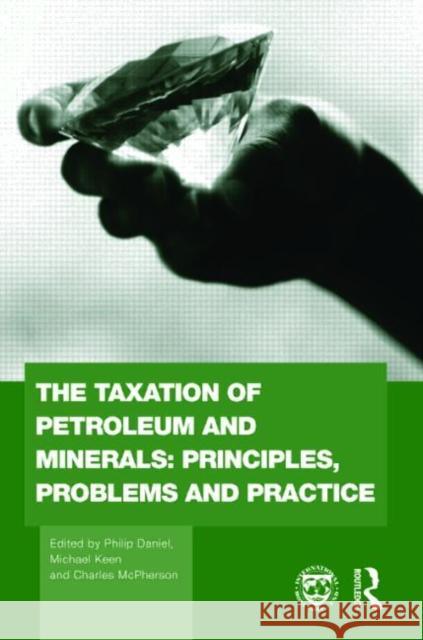The Taxation of Petroleum and Minerals: Principles, Problems and Practice » książka
The Taxation of Petroleum and Minerals: Principles, Problems and Practice
ISBN-13: 9780415569217 / Angielski / Twarda / 2010 / 480 str.
The Taxation of Petroleum and Minerals: Principles, Problems and Practice
ISBN-13: 9780415569217 / Angielski / Twarda / 2010 / 480 str.
(netto: 788,12 VAT: 5%)
Najniższa cena z 30 dni: 755,61
ok. 16-18 dni roboczych.
Darmowa dostawa!
There are few areas of economic policy-making in which the returns to good decisions are so high-and the punishment of bad decisions so cruel-as in the management of natural resource wealth. Rich endowments of oil, gas and minerals have set some countries on courses of sustained and robust prosperity; but they have left others riddled with corruption and persistent poverty, with little of lasting value to show for squandered wealth. And amongst the most important of these decisions are those relating to the tax treatment of oil, gas and minerals. This book will be of interest to Economics postgraduates and researchers working on resource issues, as well as professionals working on taxation of oil, gas and minerals/mining.
Oil, gas and mineral deposits are a substantial part of the wealth of many countries, not least in developing and emerging market economies. Harnessing some part of that wealth for fiscal purposes is critical for economic development: in few areas of economic life are the returns to good policy so large, or mistakes so costly.
Sound policy, however, is extraordinarily difficult in the field, given the large and long-term nature of the investments involved, the high political visibility of the sector, and the great volatility of resource prices. Extremely high commodity prices through mid-2008 brought these issues into sharp focus; the likelihood of continued volatility, together with recent discoveries and prospective fiscal pressures ahead, mean this interest is likely to increase greatly.
All those with an interest in fiscal regimes for resource-rich economies: academics, country officials, civil society and those working in the industries will find this book to be an invaluable resource and the content is policy-oriented, but intellectually rigorous.











